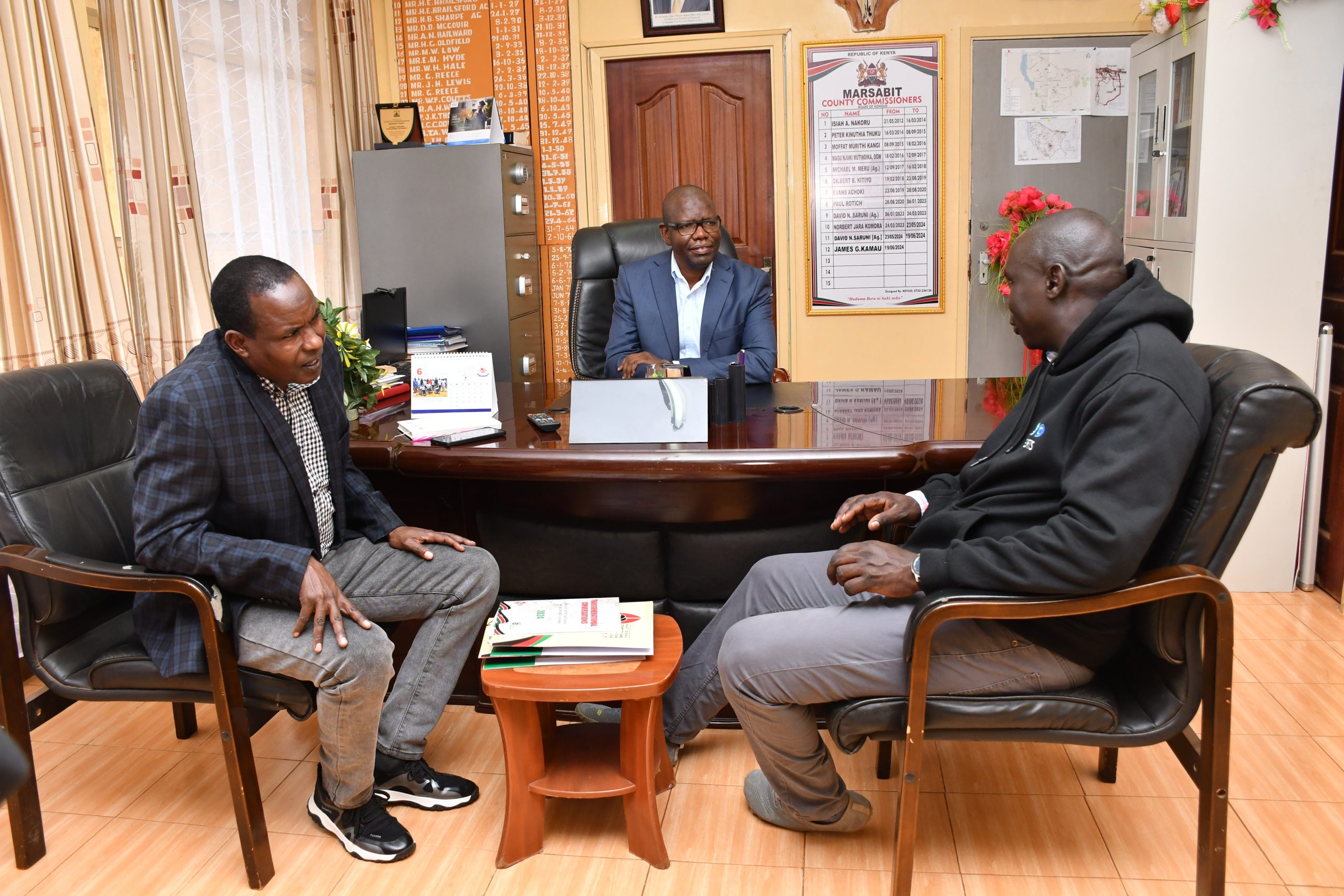
NCIC, KBC launch transgenerational dialogues in Marsabit to foster national cohesion
The National Cohesion and Integration Commission (NCIC), in partnership with the Kenya Broadcasting Corporation (KBC), has initiated a series of transgenerational town hall conversations in Marsabit County. The aim is to bridge generational and communal divides through open dialogue.
Speaking ahead of the inaugural townhall meeting under the banner #AmaniKwaGround, NCIC Deputy Director for Peace Building and Reconciliation, Liban Guyo, stressed the urgency of engaging Kenyans from all backgrounds in candid discussions on key national challenges.
“We are in Marsabit County to kickstart a national conversation in partnership with KBC, our national broadcaster with wide rural and urban reach,” said Guyo. “Tonight from 7pm to 9pm, we’ll be discussing governance issues across generations—from the post-Uhuru era to Gen X, millennials, and Gen Z.”
He explained that the event serves as a deliberate effort to provide a platform where diverse voices, particularly those of the youth, can be heard and included in shaping Kenya’s future.
“We discovered that different generations in Kenya are not talking to each other. It’s not just a generational gap but also a listening gap,” he noted.
David Saruni, the Deputy County Commissioner for Marsabit Central, underscored the symbolic significance of holding the first dialogue in Marsabit, a county historically affected by inter-community tensions.
“Today holds special importance as we mark a day of transgenerational dialogue. Marsabit has experienced conflict, not so much between generations, but primarily among communities,” said Saruni.
He pointed out that counties like Marsabit have become spaces of integration, where shared resources and opportunities necessitate cooperation and unity.
“How we raise and socialize children from diverse backgrounds will shape the future of our nation. It’s vital that every community instills in its youth a sense of unity and belonging,” he said.
Both officials stressed that dialogue is not just desirable but essential to address ongoing challenges such as youth unemployment, poor governance, mistrust in institutions, and ethnic divisions.
“In the recent past, we have seen youth agitating for good governance and inclusivity. As an institution mandated to promote peace and cohesion, we are best placed to lead this national conversation,” said Guyo.
The town hall is also expected to address locally relevant issues such as cross-border trade and inter-ethnic dynamics, given Marsabit’s proximity to the Ethiopian border.
The role of media in fostering peaceful discourse was also underscored.
“The media is not just a mirror of society , it educates, informs, and shapes public opinion,” Guyo noted. “It can either escalate tensions or help ease them. That’s why our partnership with KBC is so crucial.”
Saruni echoed the need for responsible journalism.
“The media must avoid reporting in ways that could incite tensions, especially among the youth. It should instead promote balanced conversations that support peace and understanding.”
The NCIC hopes the transgenerational forums will ignite honest, inclusive conversations that can influence both national and local policy responses.
“Dialogue has always been our way forward—whether in 2008 after the post-election crisis or through the 2018 handshake. We must continue to talk, across generations and communities,” Guyo said.
The next forums are expected to roll out in other counties as part of a broader effort to promote unity, foster mutual understanding, and shape a more cohesive Kenya.
